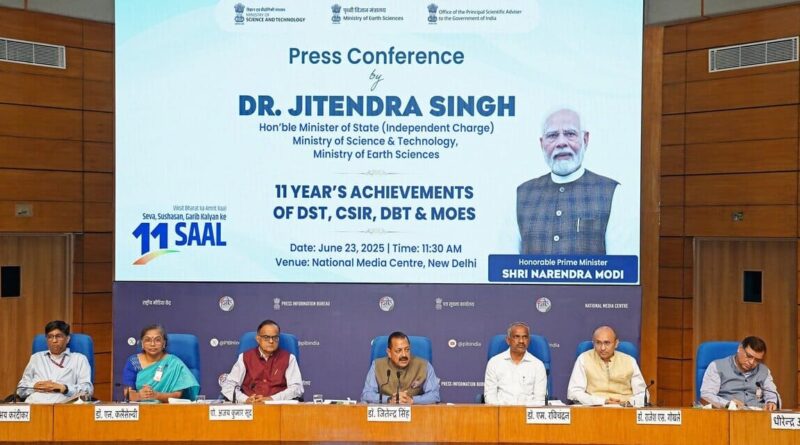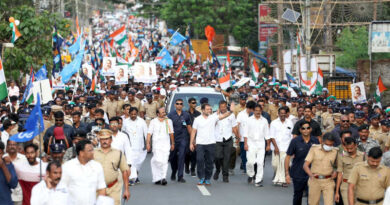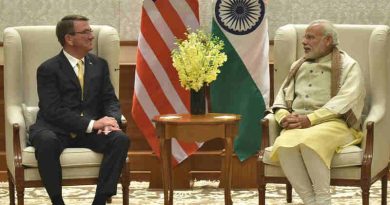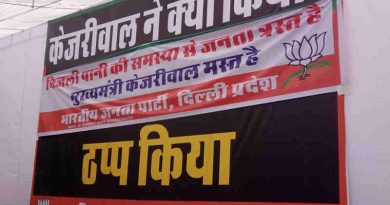India’s Scientific Renaissance: A Decade of Transformative Growth Propels Nation to Global Leadership
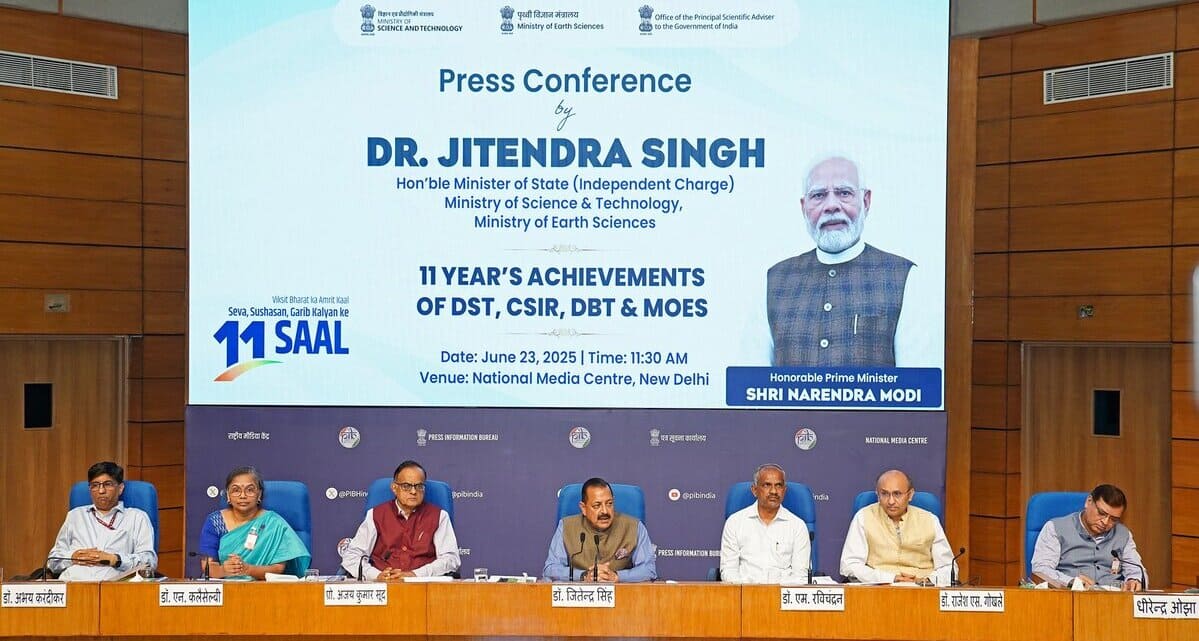
India’s Scientific Renaissance: A Decade of Transformative Growth Propels Nation to Global Leadership
The “multiplier impact” of these reforms is evident across various sectors, including agriculture, education, disaster management, defence, governance, and climate resilience.
New Delhi – India has witnessed a profound transformation over the last 11 years, with technology now serving as a primary engine for the nation’s growth story and a significant contributor to the national economy. This remarkable shift is attributed to transformative science-led governance and technology-driven reforms initiated by Prime Minister Narendra Modi.
Union Minister of State (Independent Charge) for Science & Technology, Earth Sciences, and MoS in the Prime Minister Office, Dept. of Space and Atomic Energy, Dr. Jitendra Singh, declared that India is no longer merely participating but is actively shaping global scientific discourse, setting benchmarks for others to follow. The nation has moved from the sidelines to the center stage of the global scientific ecosystem due to pioneering reforms, citizen-centric innovation, and “out-of-the-box” decisions, including the unlocking of space and nuclear sectors.
Visionary Leadership and Broad Impact: The “multiplier impact” of these reforms is evident across various sectors, including agriculture, education, disaster management, defence, governance, and climate resilience. Dr. Jitendra Singh credited Prime Minister Modi’s visionary leadership and unwavering commitment to science and technology for creating an enabling environment that empowers India’s scientific community. Scientists today enjoy unprecedented freedom, trust, and institutional support, which has catalyzed breakthroughs from biotech and space to climate science and agri-tech. This trust has fundamentally transformed India into a global hub for innovation and technology.
Key Achievements Across Scientific Domains:
- Biotechnology (DBT) Milestones:
- India’s first indigenously developed DNA-based COVID vaccine, a historic milestone in pandemic response.
- Successful clinical trials for haemophilia therapy.
- Development of Kisan BiokkAvch, an innovative anti-insecticide suit for farmer protection.
- India-developed biotech kits are slated for use by astronaut Shubhanshu Shukla in experiments onboard the upcoming Axiom 4 Mission, marking a leap into space biology.
- The Department of Biotechnology has overseen the development of seven vaccines, filing of over 1,750 patents, sequencing of more than 3 lakh COVID genomes, and the rise of the biotech economy to $165.7 billion.
- Council of Scientific & Industrial Research (CSIR) Innovations:
- Leading role in nurturing agri-based startups, including the Purple Revolution and widespread lavender cultivation in the Himalayan region, fostering aroma-based entrepreneurship.
- CSIR’s 37 labs are driving industry-grade impact across India.
- Ministry of Earth Sciences (MoES) Advancements:
- Extension of the Neighbourhood First policy through sharing climate and disaster forecasts with neighboring countries via dedicated satellite infrastructure.
- The Samudrayaan mission is on track, with Matsya 6000, India’s deep-sea exploration vehicle, currently undergoing final safety checks, with sea trials expected in 2026.
- Significant improvements in forecast accuracy, radar deployment, and real-time disaster early warnings, particularly across the Delhi-NCR region.
- Department of Science and Technology (DST) for Rural Empowerment:
- Leveraging cutting-edge technologies to transform rural empowerment and governance.
- Use of drone and satellite mapping for the Soil Health Card and Swamitva Mission, empowering farmers with precise agricultural data and reducing dependency on revenue officials.
- Application of geo-mapping for disaster management and land record modernization, creating digitally verified property rights and more efficient land administration. Dr. Singh remarked, “Our farmer is now a master of his own destiny, thanks to science,” highlighting technology’s transformative role in rural India.
Dr. Abhay Karandikar, Secretary DST, applauded the synergy between research institutions and startups, which has turned ideation into economic success stories. Principal Scientific Advisor Prof. Ajay Kumar Sood underscored that “Science has truly come to the centre stage in India’s development journey”.
Today, India is not merely adopting global best practices but is “beckoning others”, guiding nations with scalable, frugal, and people-first science solutions.
Courtesy: Ministry of Science & Technology / PIB
💛 Support Independent Journalism
If you find RMN News useful, please consider supporting us.

